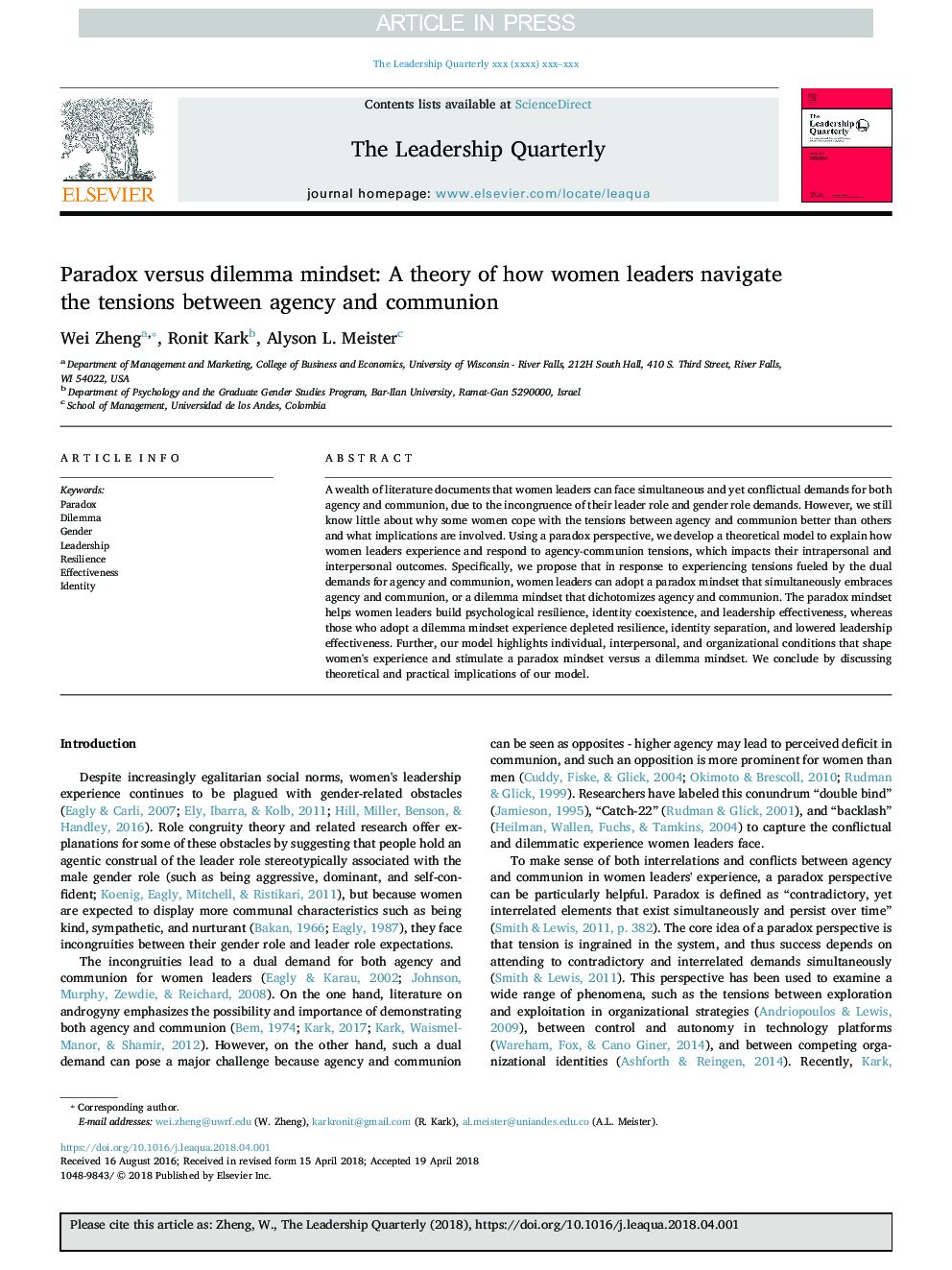| Article ID | Journal | Published Year | Pages | File Type |
|---|---|---|---|---|
| 10153312 | The Leadership Quarterly | 2018 | 13 Pages |
Abstract
A wealth of literature documents that women leaders can face simultaneous and yet conflictual demands for both agency and communion, due to the incongruence of their leader role and gender role demands. However, we still know little about why some women cope with the tensions between agency and communion better than others and what implications are involved. Using a paradox perspective, we develop a theoretical model to explain how women leaders experience and respond to agency-communion tensions, which impacts their intrapersonal and interpersonal outcomes. Specifically, we propose that in response to experiencing tensions fueled by the dual demands for agency and communion, women leaders can adopt a paradox mindset that simultaneously embraces agency and communion, or a dilemma mindset that dichotomizes agency and communion. The paradox mindset helps women leaders build psychological resilience, identity coexistence, and leadership effectiveness, whereas those who adopt a dilemma mindset experience depleted resilience, identity separation, and lowered leadership effectiveness. Further, our model highlights individual, interpersonal, and organizational conditions that shape women's experience and stimulate a paradox mindset versus a dilemma mindset. We conclude by discussing theoretical and practical implications of our model.
Related Topics
Social Sciences and Humanities
Business, Management and Accounting
Business and International Management
Authors
Wei Zheng, Ronit Kark, Alyson L. Meister,
